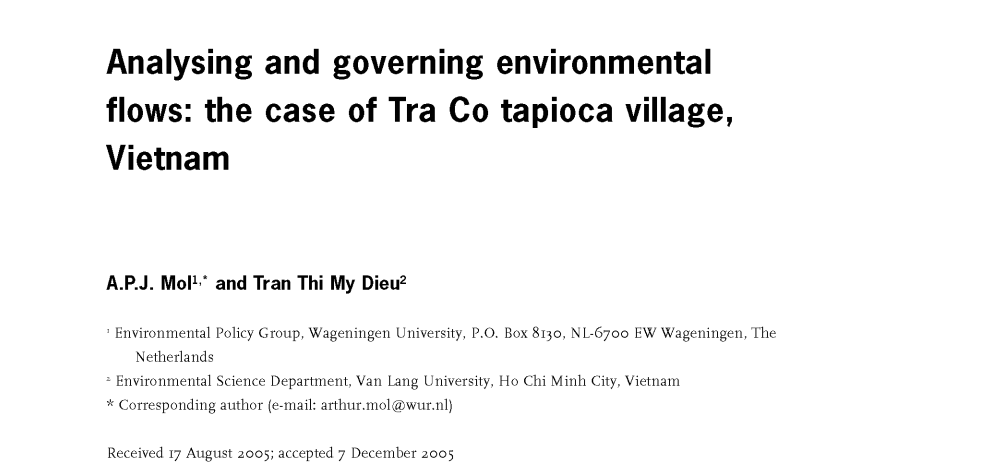
2006 | Elsevier
Environmental flows are of crucial importance for questions of sustainability. But analysing only the material side of environmental flows brings us half way understanding questions of sustainability. This article reports on the development of a more integrative approach in studying environmental impacts of agro-industrial systems in Asia, taking tapioca (cassava starch) processing in Vietnam as an example. The analysis of material flows and technological options to close material cycles is combined with an actor-network analysis from three angles: a policy, an economic and a social perspective, respectively. The paper finally assesses the additional value of the developed methodology and points out ways for further investigation and development of a more integrative approach to industrial transformations.
These guidelines aim to provide a framework for preventing recycling-related plastic and pellet losses, and environmental leakage. The guidelines are useful for a broad spectrum of stakeholders, particularly policymakers and key plastic recycling actors, including informal waste pickers, junkshops, consolidators, and plastic recycling craft villages. The application of these guidelines is expected to contribute to improving production efficiency in the plastic recycling chain while preventing plastic leakage into the environment.
The manual aim to support both formal and informal recycling enterprises in preventing plastic pollution by advocating best practices and promoting proper housekeeping within informal recycling facilities.
The main goal of this study is to evaluate plastic and pellet losses and leakage from the logistical handling and pre-processing operations of informal recycling groups in Thailand, focusing on recovered post-consumer plastic waste and factory processing operations. The focus areas of this study are the Nonthaburi Municipality and Pattaya City.
This study was conducted following on a simplified three-step approach: 1) collect and analyse data and information relevant to plastic leakage from informal sector recycling; 2) engage with key stakeholders; and 3) disseminate the outcomes of the study.
Situation Assessment Report on Plastic Leakage Prevention from Formal and Informal Recycling Facilities, Manila City and Iloilo City - Philippines
Situation Assessment Report on the Prevention of Plastic and Resin Pellet Leakage from Formal and Informal Recycing Factories, Hanoi - Vietnam